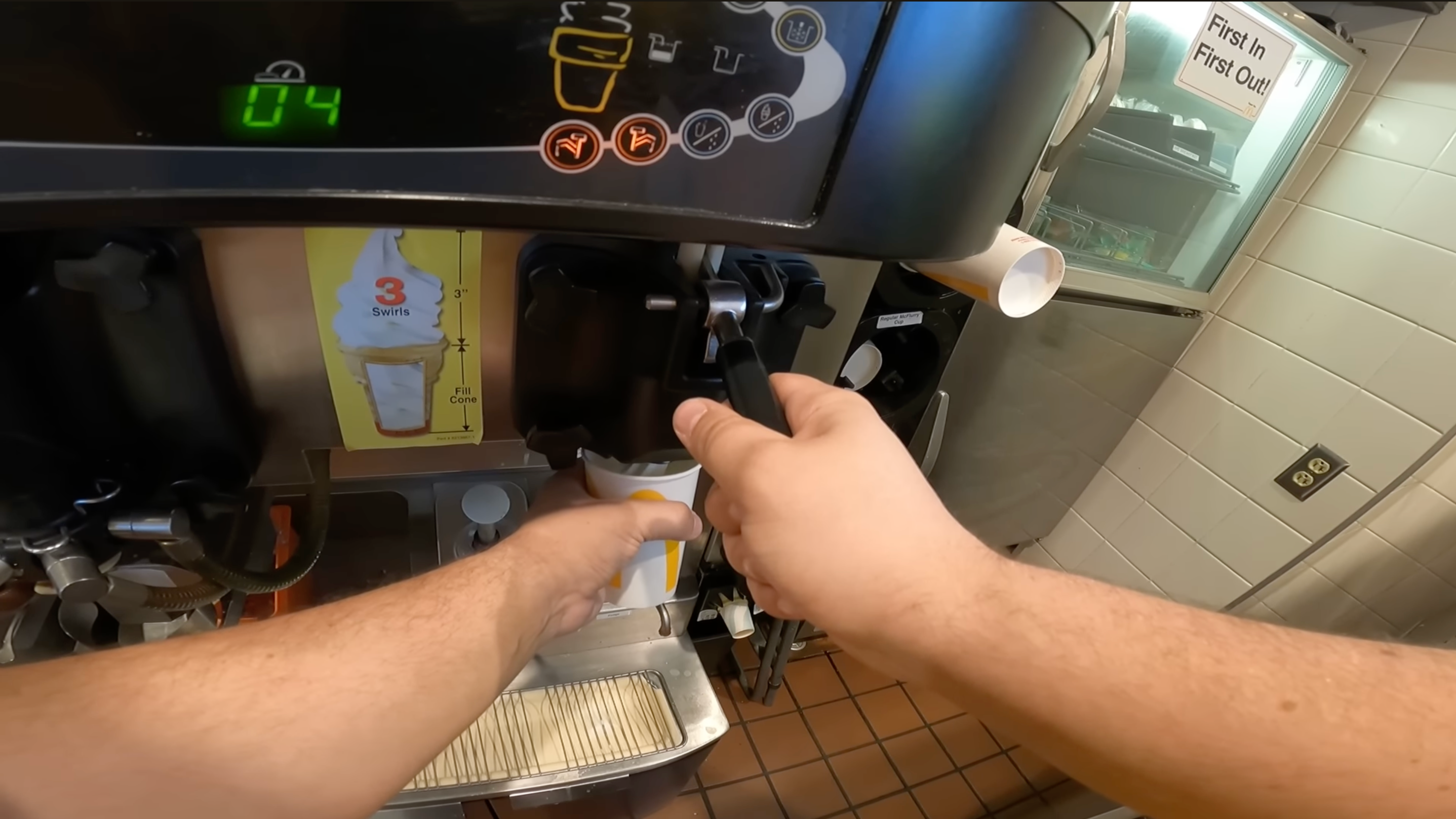Even The Government Wants McDonald's Ice Cream Machines To Be Easier To Fix
The FTC and DOJ want McDonald's "broken" ice cream machines to be fixable by third parties.
You know the running joke by now, and you've likely experienced it yourself: McDonald's soft serve ice cream machines always seem to be broken. The government is seemingly well aware of that fact, because tech news site The Verge reports that the Federal Trade Commission (FTC) and the Department of Justice (DOJ) have filed a comment with the US Copyright Office requesting an expanded exception to the copyright law that would allow third parties to repair McDonald's seemingly perpetually busted soft serve machines.
Why McDonald’s owners can’t fix ice cream machines
Currently, if a McDonald's ice cream machine takes a dump, the only service provider authorized to repair it is the manufacturer itself, Taylor. Online device repair resource iFixit did some investigating last year into what makes them so difficult to fix. It purchased the exact Taylor model used at McDonald's and performed a machine teardown, discovering in the process that the device spews out "nonsensical, counterintuitive, and seemingly random" error codes.
There have been previous attempts by third parties to decipher what's wrong with the ice cream machines, but there has been lots of drama and multiple lawsuits disputing the ability of outside companies to legally provide such service. Thanks to current copyright law, the efforts of outside parties are functionally useless; they have no legal right to go around the digital locking mechanisms or controls that restrict copyrighted work such as Taylor's ice cream machine design.
What the government has to say about McDonald’s ice cream machines
The FTC and DOJ comment says that broken machines can cost a business up to $625 in sales per day, and since Taylor is the only legally authorized technician, operators are at the mercy of Taylor's scheduling. The comment states that getting someone out to fix the machine usually takes about 90 days (with every day racking up more lost sales opportunities), and the lack of third-party repairs stifles competition.
There's no competition for replacement parts, either, so the broken logic controllers in need of replacing (including if the passwords get lost) must come from the manufacturer. And because of that, the replacements don't necessarily have to be priced competitively.
The comment filed by the FTC and the DOJ covers a few other categories, including enterprise IT, programmable logic controllers, and proprietary diagnostic kits, but none of those things are as potentially delicious and heartbreaking as soft serve machines. The next step in this process happens in April, when public hearings are scheduled at which members of the public (who signed up in advance) may testify.
Considering these copyright exemptions are issued only once every three years, this has the potential to dictate our summers well into the future. Will our warm weather memories be scattered with McFlurries and ice cream cones, or will McDonald's fail to cool us down because its soft serve machines are broken yet again?
